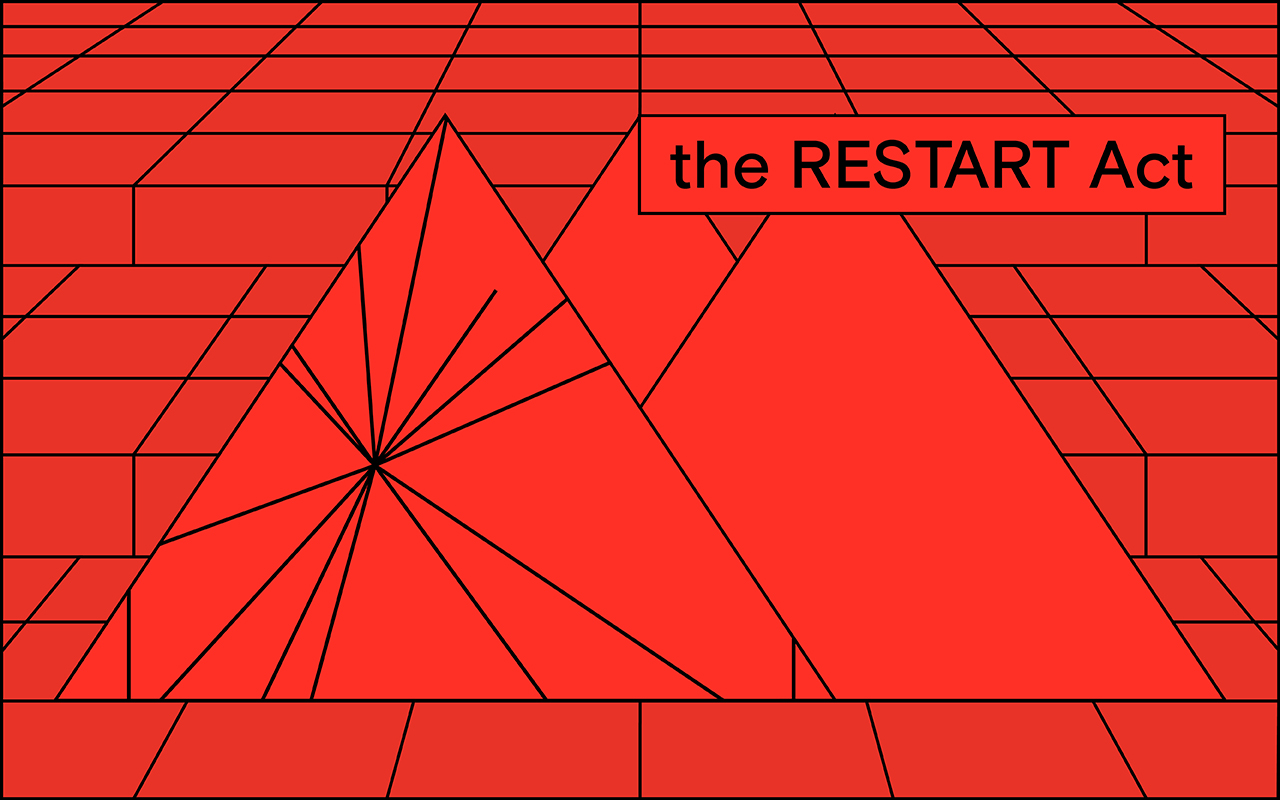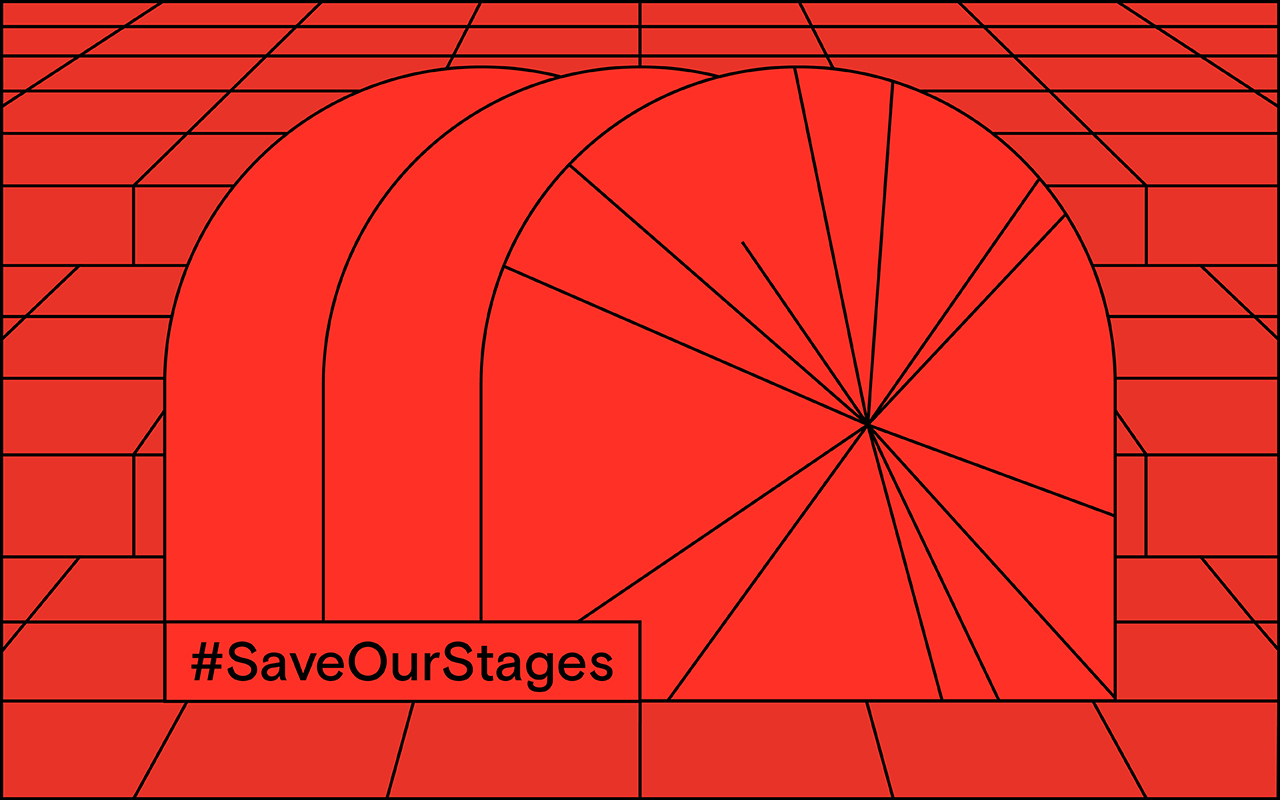Back in March, Congress passed the CARES Act: a $2.2 trillion program to help newly-unemployed workers and businesses facing payroll shortages.
Its leading package — the $660 billion Paycheck Protection Program (PPP) — would provide forgivable, low-interest loans to employers that used 75% of the funding to cover payroll costs.
Except, independent music venues were left short-handed.
While federal aid focused on shoring up payrolls for those facing a deficit, venues scrambled to find a way to create revenue at all. With an empty calendar, payroll wasn’t the only problem — it was the long list of overhead expenses that couldn’t be relieved by PPP.
“What venue has payroll as their largest expense?” says Rev. Moose, co-founder of the National Independent Venue Association (NIVA) — formed by venue owners and promoters as unpaid rent, insurance costs, and other expenses piled up. “There’s no possibility [venues] could spend 75% of PPP on payroll, because there is no payroll.”

The association rushed to create an emergency relief fund for venues and to social media: #SaveOurStages soon began to trend, helping to bring new bills to the table:
These proposals would provide small business loans to independent venues, create a new loan program to cover operating expenses for six months, and offer tax credits to reimburse venues for 50% of ticket refund costs incurred as a result of the pandemic.
While NIVA organized nationwide, city officials in New York City and advocates in Chicago have led their own local charges.
As the self-titled “CBGB Caucus,” NYC Council Members Keith Powers and Justin Brannan (and former member of hardcore bands Indecision and Most Precious Blood) penned an open letter in support for NIVA’s efforts. With much of NIVA composed of first-time organizers, the CBGB Caucus has helped them navigate the maze of policy, while pushing for immediate measures to provide relief.

“We’re mostly looking at rent as the best way to help them, plus making sure that any employees who are left out get an enhanced unemployment program — federal and New York State — and hopefully some extension or renewal of the PPP program at the federal level. Or, for those who haven’t gotten it at all, to really get it,” says Powers.
“We could extend the commercial eviction moratorium so people leasing their business aren’t evicted; they have a chance to catch up on their rent once business comes back. We passed the bill about personal liability, which means that — normally, if you’re a business owner, you’re personally liable for any expenses that you can’t pay. We excused that for a time period and should extend that.”
Though there are limitations to what the City Council is able to do on their own, leaving many at the mercy of receiving funding from the federal government.

Another ground-level NIVA partner, the Chicago Independent Venue League (CIVL), has redirected their organizing power from “guaranteeing locally owned and operated live music venues keep a strong voice as many were forced to fold in the face of multi-billion dollar conglomerates” to this latest challenge.
“Chicago’s cultural lifeblood is at stake, along with so many jobs and billions of dollars that flow annually into our local economies,” says CIVL co-founder and board member Billy Helmkamp.
That economic upheaval, in Chicago and across the country, directly affects a larger ecosystem.
“For every $1 that’s spent for a ticket in an independent venue, it generates over $12 in local economic activity,” explains Rev. Moose. “That’s the pizza shop, it’s the parking garage, that’s the restaurant next door, it’s the bar down the street, the parking meters. It’s all of these things that you spend money on as you’re going to a show.”
With no clear end in sight — Democrats and Republicans in Congress remain deadlocked on stimulus package specifics, potentially past the November election — live entertainment venues are not confident what incoming relief there is, much less where it will come from and when.
“If we do receive direct aid from the federal government, we have to provide grants or loans to businesses,” says Powers. “We should prioritize small businesses that are unable to open up because of capacity limitations or not being able to open at all because they have no revenue source.”
This conglomeration of voices is crucial: Advocacy can’t be limited to just one city, as even assistance from municipal governments will be contingent on federal aid.

Powers and Moose encourage artists to take action by contacting state and federal elected officials to vote in favor of the RESTART Act, Save Our Stages Act, and ENCORES Act.
“Even a few voices might make the difference in them signing onto a bill or not as they start to feel like their constituents are really demanding for it,” says Powers.
Without drastic financial aid, 90% of independent venues and its ecosystem would shut down in half a year. Though a recent partnership with YouTube Music may provide some relief for NIVA and its member venues, the difference between long-term survival and the end for these beloved spaces is federal assistance. And if venues continue to be left in the cold, the ripple effect could very well jeopardize the viability of independent artists.
“Independent venues and promoters are the ones that are most likely to say yes to that first show,” says Rev. Moose, “If the independent sector takes the hit, you’re going to have fewer options for where to play, for who’s calling those shots, and so forth. You have multiple options. So it’s really important to retain that ability to actually keep the marketplace viable and competitive.”





